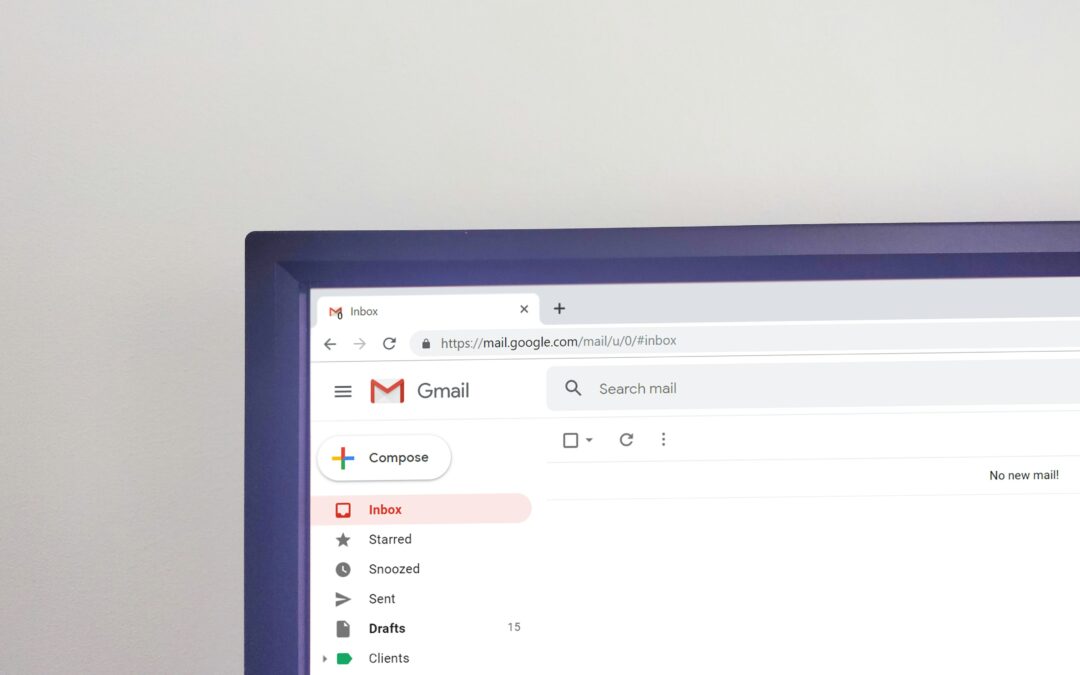Navigating the laws regarding email marketing is essential for any business wanting to avoid penalties and build trust with its audience. This article summarizes the key United States law – the CAN-SPAM Act, to help guide that your business’s email marketing campaigns are compliant and effective. The experienced team of business attorneys at Davis Business Law can help you with specific compliance questions if you contact us today.
Key Takeaways
- Email marketing laws, primarily the CAN-SPAM Act, are essential for protecting user privacy and preventing spam, requiring businesses to adopt ethical practices.
- Compliance with the CAN-SPAM Act includes accurate headers, honest subject lines, providing a physical address, and offering clear opt-out mechanisms.
- Non-compliance can result in severe penalties, including fines and reputational damage, highlighting the need for businesses to implement and regularly review compliance best practices.
The Key Email Marketing Law You Need to Know

Photo by Hannes Johnson on Unsplash
Email marketing laws are designed to protect user privacy, prevent spam, and ensure businesses use email marketing ethically and legally. Central to these laws is the CAN-SPAM Act, which aims to prevent acquiring emails without permission and sending unsolicited emails. This act, crucial for maintaining a positive brand image, sets the standard for transparent and ethical email marketing practices, in compliance with anti spam laws.
Adhering to the strictest local regulations and maintaining transparent practices are crucial for compliance with email marketing laws. For businesses engaged in email marketing, hiring an experienced business attorney to review practices is a good investment, ensuring all communications are legally compliant.
Understanding these laws is not just about avoiding penalties; it’s about fostering trust with your audience and maintaining your brand’s integrity. Complying with email marketing laws helps businesses build stronger relationships with their customers, making their marketing efforts both effective and ethical.
Understanding the CAN-SPAM Act

Photo by Hannes Johnson on Unsplash
The CAN-SPAM Act is a cornerstone of email marketing laws in the United States, controlling emails and other messages sent by businesses, marketers, and nonprofits. Passed in 2003, this law sets guidelines for what companies can and can’t do when emailing people, ensuring that commercial electronic messages are sent transparently and ethically.
The act governs all commercial email messages, not just bulk emails, and applies to emails that primarily communicate commercial advertisements or promotions of a commercial product or service. Compliance with the CAN-SPAM Act is enforced by the Federal Trade Commission (FTC) and various state authorities, with penalties for violations including fines and legal repercussions.
Compliance with the CAN-SPAM Act involves adhering to seven key components, such as maintaining accurate headers, including a valid postal address, providing a clear opt-out statement, and honoring opt-out requests within 10 business days. Let’s explore these components to understand how to ensure your email marketing campaigns are compliant.
Accurate Header Information
Accurate header information is crucial for transparency and must accurately reflect the sender’s identity. The ‘From,’ ‘To,’ and ‘Reply to’ labels must indicate the sender’s name or the business name, ensuring that recipients know exactly who is contacting them. This level of transparency helps build trust with your audience and avoids potential penalties under the CAN-SPAM Act.
Avoiding misleading header information is essential for compliance. Any incorrect or deceptive information in the header can lead to severe penalties, undermining your credibility and risking legal repercussions. Accurate and transparent header information is fundamental to maintaining compliance with email marketing laws.
Honest Subject Lines
Subject lines must truly represent the email content and not mislead recipients. This means that the subject line should accurately reflect the content of the electronic mail message, avoiding any deceptive subject lines that could mislead the reader. Honest subject lines are a cornerstone of ethical email marketing, helping to maintain trust and compliance with regulations.
Senders should ensure that the advertising content is clear and conspicuous, even though the CAN-SPAM Act does not require specific wording. Following these practices not only helps in complying with email marketing best practices but also in building a trustworthy relationship with your audience, ensuring that your commercial messages are received positively.
Including a Physical Address
Including a valid physical address in emails is a legal requirement in many jurisdictions. Each marketing email must contain the postal address of the person or business sending the email. This requirement helps to establish legitimacy and provides recipients with a way to contact the sender directly, ensuring transparency and building trust.
Opt-Out Mechanism
According to the CAN-SPAM Act, every unsolicited email must provide an option to opt out of receiving further emails, including an unsubscribe link. This opt-out mechanism should be visible and easy for recipients to recognize and understand. Allowing recipients to unsubscribe without any complicated procedures, such as requiring an email response or visiting a single webpage, is crucial for compliance.
Recipients should be able to opt-out without being charged a fee or providing more personal information than their email address. Opt-out requests must be honored within 10 business days, ensuring that recipients’ preferences are respected promptly.
Offering a straightforward opt-out option is both a legal requirement and a best practice for maintaining a positive relationship with your audience.
Compliance Best Practices for Email Marketers

Photo by Thanhy Nguyen on Unsplash
Maintaining compliance with email marketing laws requires a strategic approach by ensuring accurate headers, using honest subject lines, including a physical address, and providing an opt-out mechanism. These practices help to build trust with recipients and avoid potential legal issues.
Businesses should maintain a clean mailing list, provide easy opt-out options, obtain and record consent, and honor opt-out requests promptly. Email marketing software can assist in managing compliance by handling the unsubscribe process and list management effectively. Regular audits of marketing emails and third-party email service providers can help ensure they maintain compliance with legal requirements.
Compliance with email marketing laws is an ongoing process. Reviewing campaigns before sending them out and ensuring all elements adhere to regulations is crucial. Following these best practices helps businesses protect themselves from potential violations and build a strong, trustworthy relationship with their audience.
Documenting Consent
Documenting consent ensures compliance with email marketing laws. Proper documentation protects your business from potential violations and shows respect for your audience’s preferences. This involves recording when and how consent was obtained, ensuring that you have a clear record to reference if needed.
Obtaining consent can be done through various methods, such as double opt-in processes, where recipients confirm their subscription twice. This helps to ensure that the consent is explicit and reduces the risk of non-compliance.
Effective documentation of consent safeguards businesses against potential legal issues and helps build a more engaged and trusting audience.
Monitoring Third-Party Services
Businesses must ensure that any third-party email marketing services they use comply with the CAN-SPAM Act’s requirements. This involves conducting regular audits and reviews of the third-party services to ensure they meet all legal requirements. Consumers have the right to request the deletion of their personal data, and businesses must comply with such requests within a specified timeframe.
Establishing clear procedures for handling personal data and ensuring that third-party services adhere to these procedures is crucial. By monitoring third-party services closely, businesses can collect personal data while processing personal data to protect themselves from potential data breaches and ensure compliance with privacy and data breaches regulations. This not only helps in maintaining legal compliance but also in building trust with consumers.
Penalties for Non-Compliance

Photo by Junseong Lee on Unsplash
Violating the CAN-SPAM Act can lead to significant financial penalties. Each non-compliant email can result in fines as high as $51,744. The law imposes these hefty fines to ensure that businesses take compliance seriously and adhere to the established guidelines.
In addition to financial penalties, there are criminal penalties for serious violations, which may include imprisonment for unauthorized access to computers to distribute spam. Non-compliance can also damage a business’s reputation, leading to loss of trust and potential customers.
Understanding these penalties underscores the importance of adhering to email marketing laws and implementing best practices.
Summary
In summary, understanding and adhering to email marketing laws is crucial for any business engaged in email marketing. The CAN-SPAM Act provides clear guidelines on how to conduct email marketing ethically and legally, emphasizing the importance of accurate headers, honest subject lines, a physical address, and an opt-out mechanism.
Compliance best practices, such as maintaining a clean mailing list, documenting consent, and monitoring third-party services, help businesses avoid potential violations and build trust with their audience. The penalties for non-compliance are severe, including hefty fines and potential criminal charges, highlighting the importance of following these laws closely.
By following the guidance provided in this blog post, businesses can ensure their email marketing campaigns are not only effective but also legally compliant. Protecting user privacy and building a trustworthy relationship with your audience are key to long-term success in email marketing.
Frequently Asked Questions
How quickly must opt-out requests be honored?
Opt-out requests must be honored within 10 days. It is essential to ensure compliance with this timeline to respect consumer preferences.
Who is responsible if a hired company breaks the CAN-SPAM Act rules?
The original email sender remains responsible if the hired company violates any CAN-SPAM Act rules. Thus, it is crucial to ensure compliance with regulations when outsourcing email campaigns.
What are email marketing laws designed to do?
Email marketing laws are designed to protect user privacy, prevent spam, and mandate ethical practices in email communications by businesses. Compliance with these laws is essential for maintaining trust and legality in marketing efforts.
Is it illegal to send marketing emails?
It is legal to send marketing emails if they adhere to the regulations established in each country. Ensure compliance with laws such as the CAN-SPAM Act in the United States or GDPR in Europe to avoid legal issues.
Who regulates email marketing in the United States?
Email marketing in the United States is primarily regulated by the Federal Trade Commission (FTC) along with various state authorities. Compliance with these regulations is essential for any email marketing campaign.

